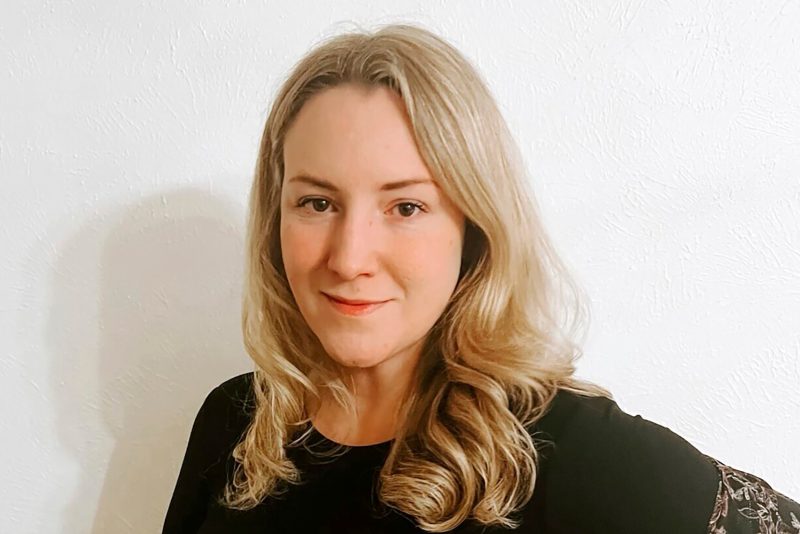
Texas woman at center of an abortion ban challenge leaves state for procedure
Kate Cox, a Dallas-area woman who petitioned a judge to get an abortion in Texas, has left the state for abortion care after a week of legal whiplash.
The Texas Supreme Court late Friday night blocked a lower-court ruling that would have allowed Cox to get an abortion under the state’s near-total abortion ban, but it has not yet issued a final decision on the matter.
Cox, a 31-year-old mother of two, had sought an abortion after learning that her fetus had a fatal genetic condition and that carrying the pregnancy to term could jeopardize her future fertility. The case is the first instance of an adult pregnant woman asking a court for permission to terminate her pregnancy under an abortion ban since Roe v. Wade was decided in 1973.
Cox’s lawsuit has been widely viewed as a test case for other abortion litigation across the country. Advocacy groups have tried a variety of different approaches to overturn or temporarily block the bans, in full or in part, since the Supreme Court overturned Roe in June 2022. Most recently, several cases have centered on the women directly affected by the laws, instead of abortion clinics or doctors.
While the Texas Supreme Court might have eventually ruled in Cox’s favor, the Center for Reproductive Rights, the organization representing Cox in the case, said she couldn’t wait any longer for abortion care.
“This past week of legal limbo has been hellish for Kate,” said Nancy Northup, president and CEO of the Center for Reproductive Rights. “Her health is on the line. She’s been in and out of emergency rooms, and she couldn’t wait any longer.”
Travis County District Judge Maya Guerra Gamble, an elected Democrat, granted a temporary restraining order on Thursday to allow Cox to have an abortion under the narrow exceptions to the state’s ban, which allows abortions in medical emergencies. But Texas Attorney General Ken Paxton (R) asked the Supreme Court of Texas to intervene to block Cox from obtaining an abortion.
Separately, Paxton in a letter on Thursday threatened to take legal action if Cox had the procedure in the state, warning doctors and hospitals that anyone involved in performing an abortion for Cox would face “civil and criminal liability” that could include “first-degree felony prosecutions.” He contended that Cox’s doctor did not meet “all of the elements necessary to fall within an exception to Texas’ abortion laws” and that the judge was “not medically qualified to make this determination.”
The case drew national attention after Cox described in an op-ed in the Dallas Morning News how she came to the decision to seek an abortion after learning that her fetus had Trisomy 18. Almost all such pregnancies end in miscarriage or stillbirth, according to the Cleveland Clinic. Babies who do survive often die prematurely.
“I just never thought I’d be in the situation I’m in right now. Twenty weeks pregnant with a baby that won’t survive and could jeopardize my health and a future pregnancy,” Cox wrote.
She also explained why she was seeking legal permission in Texas for the procedure.
“I am a Texan. Why should I or any other woman have to drive or fly hundreds of miles to do what we feel is best for ourselves and our families, to determine our own futures?” Cox said.
Cox had been to the emergency room at least three times during the course of her pregnancy, according to the complaint, experiencing “severe cramping, diarrhea, and leaking unidentifiable fluid.” Cox has had two prior Caesarean sections and would have probably needed a third if she carried this pregnancy to term, according to the complaint — a procedure that doctors said could have affected her ability to have more children in the future.
Doctors and hospitals across the country watched closely as Cox’s legal battle unfolded. In Texas, a doctor who performs an abortion could be sentenced to life in prison.
In his letter on Thursday, Paxton issued the most clear and credible threat to date to hospitals and doctors in the wake of the U.S. Supreme Court ruling. While medical professionals have feared what might happen if they provide abortions later deemed illegal, no medical professional has yet been prosecuted under the new abortion bans.
“This is the most direct confrontation we’ve seen,” said Mary Ziegler, a law professor at the University of California at Davis who specializes in the politics of reproduction. “There’s been some interest in prosecuting people who are in the broader abortion support network, but not doctors.”
The Texas attorney general’s office was probably eager to stop Cox’s case from becoming a blueprint for future litigation across the country, Ziegler added.
Days after Cox filed her lawsuit, a second pregnant woman came forward with a lawsuit challenging the abortion ban in Kentucky. The class-action lawsuit, filed on Friday, could have broader implications for abortion access across the state. Instead of appealing just for her abortion, the unidentified pregnant woman is seeking to strike down the ban altogether.
Cox’s suit is not related to a separate, broader case in the state, Zurawski v. State of Texas, in which a group of women who experienced pregnancy complications sued the state over its abortion ban. The women claim that state law denied them proper health care and put their lives in danger. The Texas Supreme Court held a hearing on the matter last month.
Pradnya Joshi contributed to this report.
